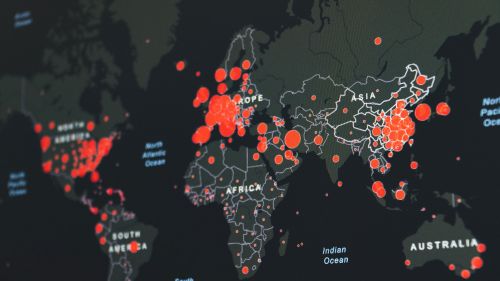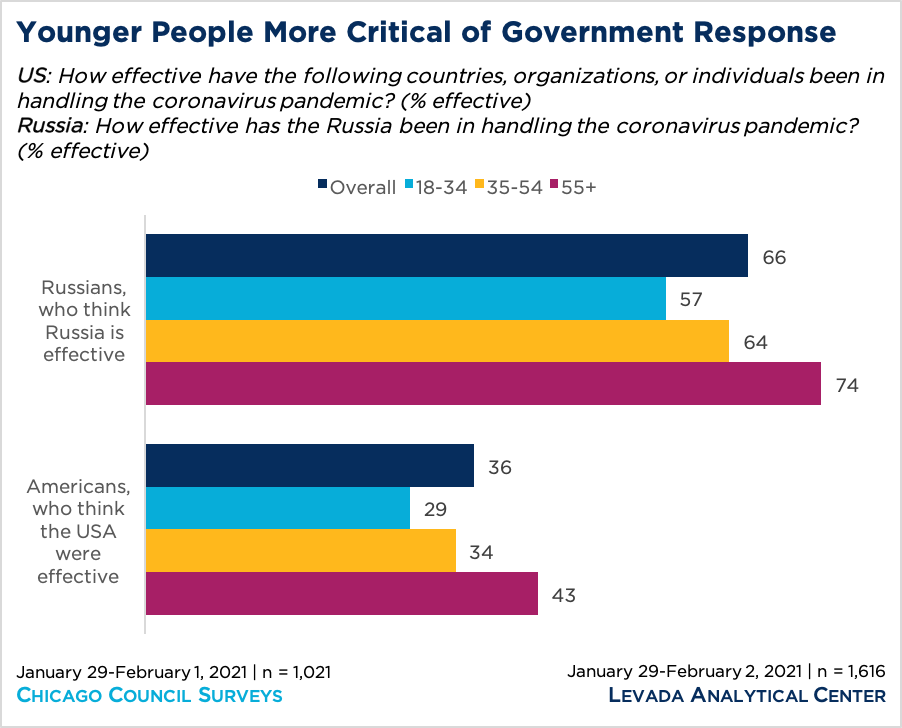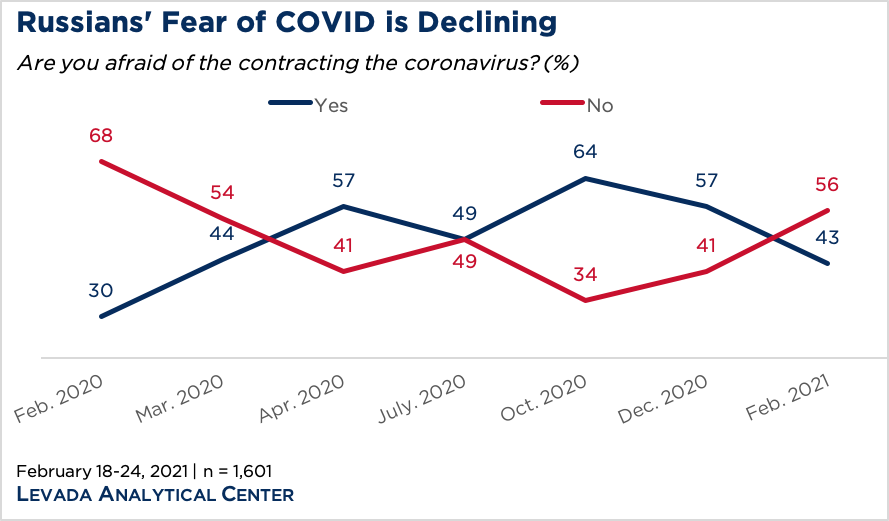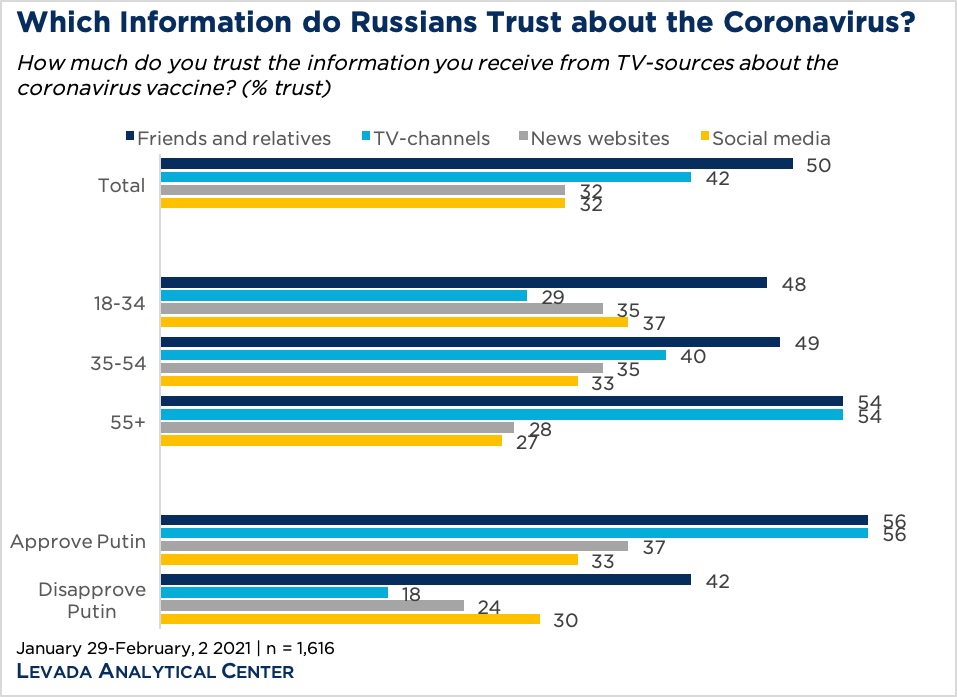How Do Attitudes about the Coronavirus Response Differ in Russia and the United States?

Survey data shows that Russians are more likely than Americans to say that their nation's government handled the coronavirus pandemic effectively.
Russia’s exposure to the coronavirus was delayed compared to other countries, but at this point, according to the national coronavirus information center, there are more than 4 million COVID-19 cases and nearly 94,000 deaths in Russia. Some estimate that this number is actually higher. The toll in the United States is even greater, with more than 29.6 million cases and 538,000 deaths. Public assessments of the government response differ widely in both countries, with a majority of Russians but only a third of Americans saying their respective government’s response has been effective.
Most Russians But Few Americans Satisfied with Own Government’s Response to COVID
Compared to many countries, the Russia’s initial response to the coronavirus outbreak was quick, though some analysts say it was inconsistent. Nevertheless, two thirds of Russians (66%) think that Russia’s handling of the virus was effective, and even more say that China’s response was effective. Russians are mostly critical of US and UK efforts, with just 19 percent saying the United States and 20 percent saying the UK has handled the virus effectively.
In contrast to prevailing satisfaction among Russians, only 36 percent of Americans evaluate the United States’ response as effective. While a similar percentage of Americans rate Russia’s efforts as effective (41%), more believe that the UK (46%) and China (53%) have handled the outbreak effectively.
Sources of Information, Political Preferences and Age Are Factors in Assessments
Sources of information usually influence public attitudes. In Russia those who get their news from TV (television stations are predominately controlled by the state) more positively evaluate the government’s activities in fighting the coronavirus. Readers of online publications in Russia think more positively about the situation in the United States and in the UK.
Political preferences also influence perceptions. In Russia, other political markers determine attitudes to government measures. Russians who approve of President Vladimir Putin have a more positive view of the government handling of the pandemic than the general population (79% of Putin supporters vs. 66% overall). In the United States, Republicans have significantly more positive views of the American response to the coronavirus than do Democrats (55% vs. 25%), no doubt reflecting the fact that these polls were conducted just after the transition from the Trump to the Biden administration.
Age is also a differentiating factor for this question. Younger respondents in both countries tend to have less favorable attitudes about their countries’ achievements. For example, 57 percent of Russians aged 18-34 think that Russia’s response has been effective, compared to 74 percent of those age 55 and older. In the United States, the same pattern applies: 29 percent of those between the ages of 18 and 34 say the US response has been effective, compared to 43 percent among those 55 and older.

Fewer Russians Are Now Afraid of Contracting the Virus
Meanwhile, a recent survey by the Levada-Center in Russia revealed a declining level of fear of contracting the coronavirus. In February 2021, 43 percent of Russians say they are afraid of contracting the virus, the lowest level of fear since March 2020, when the epidemic began to spread in Russia. On the one hand, decreasing fear may indicate that Russians are growing accustomed to living with the outbreak. Around 70 percent of Russians personally know people who have had the coronavirus. On the other hand, it could also reflect reactions to loosening government measures against the epidemic or to the emergence of a vaccine.

Modest Reception for Sputnik V Vacccine
The Sputnik V vaccine became the world’s first against the coronavirus last August, and it is now in global demand. But many Russians are skeptical about receiving it. In a February 2021 Levada survey, 30 percent of Russians say they are ready to get the vaccine and 4 percent have already received it, down slightly from 38 percent in December 2020. Fear of side effects is still the main reason for vaccine hesitancy (37% up from 29% in December 2020). Also, slightly more Russians now than in December see no point in getting vaccinated (12% in December 2020 and 16% in February 2021), which might be tied to their declining fear of contracting the virus.
In addition, many Russians are suspicious about the origins of the virus itself. About two thirds of Russians believe the vaccine was artificially created as a new form of biological weapon (64%). Only about a quarter (23%) believe instead that the virus originated naturally (13% responded that it is difficult to say). The prevailing narratives emerging from focus-groups conducted by the Levada-Center were the emergence of the “coronavirus as a biological weapon” or as a “leak from laboratories.” According to the poll, younger Russians (under 25) are less prone than others to believe these theories (49% compared to 64% overall).
Russians trust friends and relatives (50%) the most for information about the vaccine, followed by TV-channels (42%) which are usually associated with the government. Internet sources–websites and social media–are trusted by every third Russian. Younger Russians are much less confident in news from TV-channels and prefer internet sources. Putin’s supporters (which are also generally older than his critics) tend to believe the news about the vaccine regardless of the source, while Putin critics tend to believe their close contacts (friends, family and social media) more than the government-run TV-channels.
Americans were presented with a different set of options. Three of four Americans trust medical experts (73%), and about half trust the US government (52%) as news sources about the coronavirus vaccine. A significant minority trust the US news media (40%) and only 15 percent trust social media. While seven in ten Democrats (72%) trust information from the government, only a third of Republicans (35%) say the same. Trust in the media is even lower: two-thirds of Democrats (65%) but only 16 percent of Republicans trust vaccine information they get from the news media.






